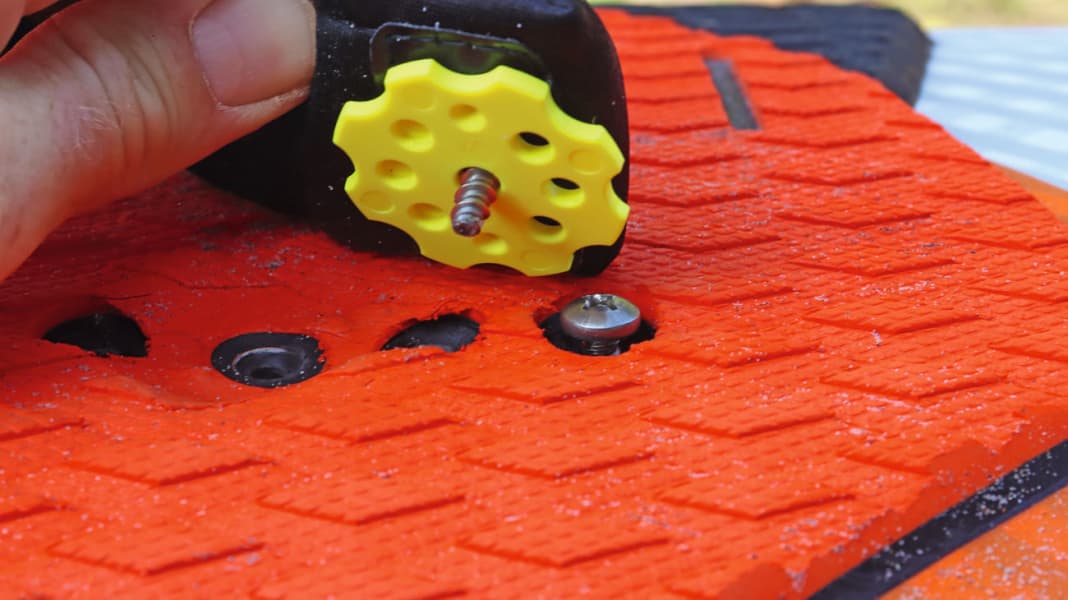
The principle when tightening the foot loop screws is: the tighter you tighten them, the better they prevent the foot loop from twisting or untwisting - the engineer calls this "force-fit". In the case of the loops, however, the problem is that you are turning self-tapping screws into a comparatively soft plastic plug. If you apply too much force, you quickly overtighten the plug and render it unusable. If, on the other hand, you don't tighten the screw enough, the friction of the foot loops on the footpad is too low - the loops twist, the screws work, which again damages the plug in the long term.
Developer Guido Hennen, who works full-time as an engineer, has therefore developed the S4lt ATW 277, which is designed to "decouple" the forces that occur.
This is how S4lt ATW prevents the foot straps from twisting
Firstly, unscrew the foot loop screws and remove the plastic or metal plates on the loops that are usually installed on standard boards. Then you have to make sure which plug spacing is available on your own board - the one with around 13 millimetres or the wider spacing of just under 25 millimetres. In the case of the narrow spacing (13 mm), the thinner grub screws are used, whereas for plugs with 25 millimetre spacing, the screws with a large head are used as anti-rotation screws. In both cases, the anti-rotation screw is inserted into the respective neighbouring plug so that it protrudes a few millimetres at the top.
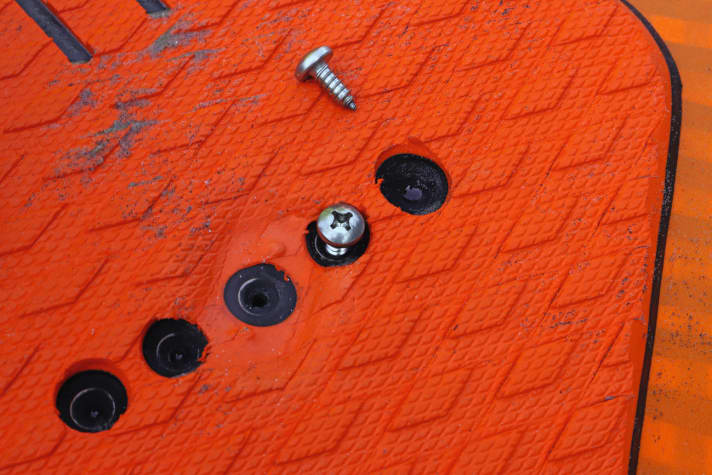
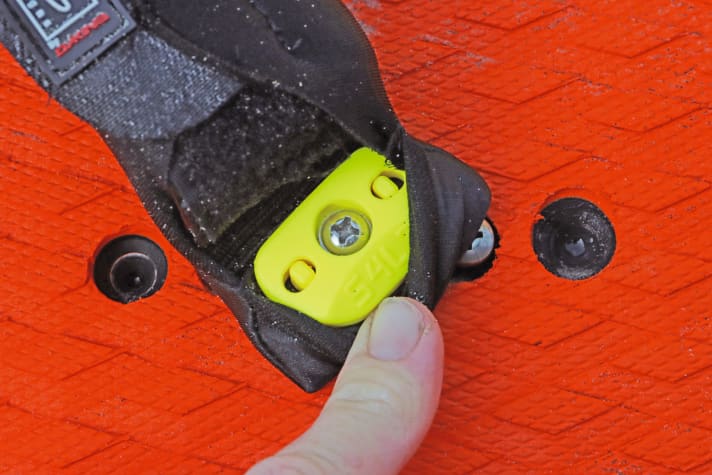
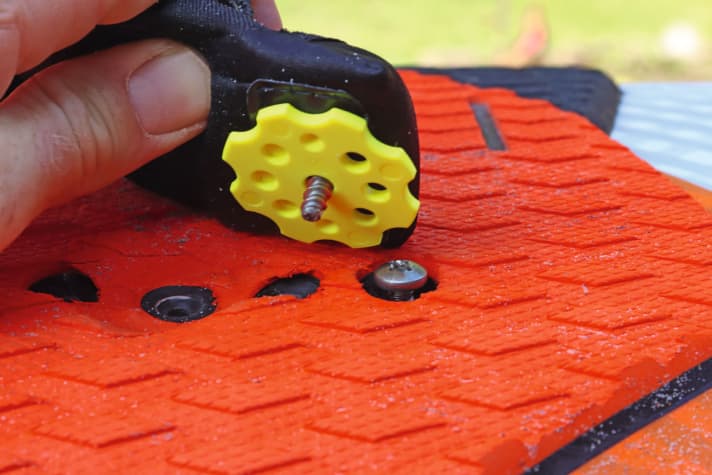
If you now turn the screw into the plug, you can do so in the knowledge that you no longer have to tighten it fully - twisting of the foot loop is now successfully prevented by the anti-twist screw, not by tightening it.
Conclusion:
It is still theoretically possible to tear out the plugs or tear off the screw with the S4lt ATW - after all, the foot loop is still attached with just one screw. However, the main cause of damage to the plug or screw - the need to (over)tighten the screw - is successfully eliminated with the system. You should also tighten the screws properly with the ATW, as the deeper they are screwed in, the better they hold in the plug. The system is particularly useful on boards where the standard anti-twist protection of the loops no longer works properly.
Info and order HERE
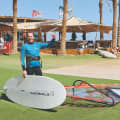
Manuel Vogel
Editor surf
Manuel Vogel, born in 1981, lives in Kiel and learned to windsurf at the age of six at his father's surf school. In 1997, he completed his training as a windsurfing instructor and worked for over 15 years as a windsurfing instructor in various centers, at Kiel University sports and in the coaching team of the “Young Guns” freestyle camps. He has been part of the surf test team since 2003. After completing his teaching degree in 2013, he followed his heart and started as editor of surf magazine for the test and riding technique sections. Since 2021, he has also been active in wingfoiling - mainly at his home spots on the Baltic Sea or in the waves of Denmark.
